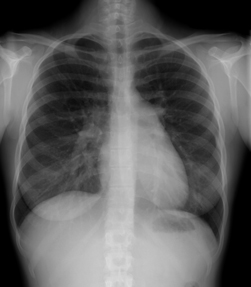Reflecting on a busy year and on returning home
ACP's outgoing president reflects on his year serving the College's membership and the joys of rededicating himself full-time to his patients.
Alice M. is an 83-year-old African-American woman who was recently in my office for a long-anticipated follow-up visit. She is a retired schoolteacher and lives no more than a mile from my office, which is in an urban academic medical center. I have been seeing her in my internal medicine practice for 17 years, though in the last two years her visits to me have alternated with seeing my excellent physician's assistant. Occasionally, one of my practice partners has stepped in to see her for an acute medical condition. Alice has also had to reschedule her visits because of my travel schedule. As we were discussing the results of her recent labs and exam today, Alice blurted out, “I'm glad my tests are good, but doctor, when are you going to stop traveling so much?”
I have been privileged to serve these last 12 months as the College's president. My year as president has afforded me many opportunities to see the best of our profession and work with outstanding physicians and leaders from the breadth of our specialty, as well as other specialties. It has renewed my faith in our profession and in the essential role of the College in American medicine.
The College serves many roles for our specialty. It defines our professional values, prescribes and monitors our ethics, develops programs and products that set the standards for internal medicine education, nurtures young physicians as they develop their careers, helps with obtaining and maintaining competence, assists with board certification and recertification, publishes internal medicine's premier journal, develops well-thought public policy, and advocates for our profession and patients on Capitol Hill and with the executive branch.
The College puts on internal medicine's most dynamic meeting and supports regional and chapter meetings in the U.S. and internationally. It also convenes with subspecialty societies and associations to develop effective relationships and joint efforts to improve American health care, medical education, and patient engagement. Leaders of the College have played key roles in the American Board of Internal Medicine, Joint Commission, Institute of Medicine, and Association of Professors of Medicine and have been leaders of our subspecialty societies, as well as the Society of General Internal Medicine and the Society of Hospital Medicine.
As president, I have spent a part of almost all my weeks talking to reporters about important health or public policy issues, as the College's positions and knowledge are well respected and recognized as authoritative, balanced and centered on what is best for our patients. I have testified or provided written comments to Congress on issues of concern, including payment reform, new models of care, fixing the Sustainable Growth Rate, medical education, and curbing gun violence.
I have enjoyed attending chapter meetings, learning of our members' concerns and seeing the enthusiasm of the next generation of internists and internal medicine subspecialists.
In all my efforts as president, I have had the support of outstanding teams of professionals at the College who work every day to serve our members. There are also more than 250 members who volunteer their time to serve on key policy committees, governors' advisory councils, and other committees and councils to drive the policy agendas of the College in areas as diverse as ethics and human rights, payment reform, medical education, practice innovation, and attracting the best and the brightest into internal medicine. This concentration of the efforts of engaged members and dedicated College staff is the “secret sauce” of the College, serving our members, our patients and our profession.
To those who ask, “Why join the College?” I respond that members benefit from the work of a great team of physician members and professional staff, all focused on improving the profession, educating our members, and advocating for their needs and the needs of their patients. As Helen Keller said, “Alone we can do so little; together we can do so much.”
College members who take the next step and become actively engaged with ACP activities receive much more. They experience the fellowship of like-minded members who come from their local chapters and regions, from across the U.S., and from around the world. They have an opportunity to make a difference, to learn about our profession and themselves, and to gain the friendship and respect of a diverse group of colleagues.
In my 35 years as a member of the College and the last 10 years in leadership roles, I have spent many hours in committee meetings, at CME events, and in board meetings working with peers to develop the resources, programs and products that will help our members serve their patients and have successful and meaningful careers. I have received much more than I have given, particularly the friendship of many outstanding members and College staff.
I want to give special recognition to Phyllis Guze, MD, FACP, who served this year as our Board of Regents Chair, and outgoing Treasurer Dennis Schaberg, MD, MACP. I also want to recognize incoming officers Molly Cooke, MD, FACP, our next President; Charles Cutler, MD, FACP, the next Board of Regents Chair; and Robert Gluckman, MD, FACP, our next Treasurer. We have all worked enthusiastically as a team on our members' behalf, and I will be forever grateful for the honor of being the College's president and the friendships I have made. I must especially thank all my patients, who have taught me much about both medicine and life, and endured a challenging year.
Internal medicine remains a great career and an even better life. To my patient Alice M., I say, “I'll be home a lot more now. Let's get together to catch up soon.”




